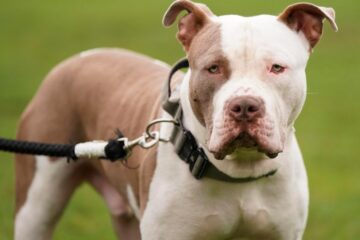As humans age, our skin becomes thinner and more vulnerable to things like cuts and scrapes. This is why it’s important for the health of your skin to pay attention to the way you take care of it. If you are curious about what kind of grooming habits work for other people, then try doing that for a few weeks!
For some individuals, though, their cats seem to have an obsession with licking their paws. While this may sound cute, it can be annoying if you happen to watch it happening all day every day.
Luckily, there are several reasons why most cats lap themselves against furniture or otherwise scrape off some of the thick protective layer known as fur. So, in this article, we will discuss those reasons and hopefully put an end to your furry cat friend’s self-licking habit. Read on to see what they do!
Why Does Your Cat Like To Lick Herself?
It could be because she thinks you’re not paying enough attention to her. After all, being loved by you makes her feel good and confident, so she would probably rather focus on getting that love than seeking something else that feels similar.
Another possibility is that she just doesn’t know better. Because she has never been taught, her internalized perception of how big and fluffy your hands are must look very small and thin.
They keep bacteria off their paws

Cats are famous for washing their whole bodies several times a day, especially their tails which many think have special fur oils that aid in self-cleaning.
But what if we told you that all of those long, elaborate baths cats get themselves involve them licking their own hands? And not just once either!
Many believe that this habit helps prevent your cat’s nails from growing too long because it removes excess keratin (the protein found in hair and skin) and dips into their body’s natural chemicals to do so. Plus, it feels nice!
It’s totally normal for kittens to groom themselves
If your kitten is ever seen rubbing her nose or chin on an object, then she probably just got some more of the liquid she just sprayed onto herself. It’s normal behavior for young kittens who aren’t yet fully trained.
She may also be trying to find a scent or determine whether there is one by checking it against her memory.
They use their tongue to taste their paws
When your cat licks her paw, she is usually trying to remove dried saliva or scrape off some dirt that has gotten stuck under one of her nails.
She may also be scratching herself with the nail. If you see this happening, take a moment to admire her beautiful grooming skills!
It’s totally normal for cats to self-grope by moving their claws back and forth across their body or rubbing them against other objects. It helps them relax after they have been out interacting with things or playing.
But when animals like dogs or horses do it, it can indicate something more serious. For example, if your dog or horse is limping then it could mean they hurt themselves.
So while it might look cute, your cat’s constant licking could actually be telling you something important about how she is feeling.
They use their paws to rub their face
Sometimes, after you take your dog for a walk or let him out of his crate, he will try to lick himself. It can be annoying to have to wash off all that saliva!
Cats are not as obsessed with grooming themselves like some other animals. That is why they often spend time licking their front feet.
Why do cats licker their paws? There are several theories about this. Some say it helps remove dead skin or dirt, while others think it has to do with taste.
There’s even an entertaining YouTube video where the narrator suggests that it may help spread fur around. But none of these reasons seem very plausible.
They use their paws as a mouse
Many things kittens do seem kind of odd at first, but once you understand them, they make sense. For example, why does your little one play with toys that he or she immediately loses interest in? To explore his or her room!
The same thing happens with cats. When they are babies, they need to practice moving around and exploring. So, they licks their feet – to learn how to walk. And then they grow up thinking they can’t move well, so they lick their paws — to learn how to brush themselves.
Some experts believe this habit comes from when cats were less mobile as infants and young animals. But now that they are older, it has something more profound going for it.
They want to know if something is edible and whether or not it will hurt them. This is called tactile perception and lotus eaters can tell you how important it is to be able to perceive textures and feel safe enough to test unknown foods on your palate!
So what makes your cat lick his or her paw?
It could just be because they like it, but there may be another reason too. Here we will discuss some theories about why your kitty loves to self-licker.
They use their paws as a scratcher
When your cat is grooming herself, she will often lick her paw to remove loose skin or dirt that has got stuck there. This is called self-licking.
Some cats do this more frequently than others. Some of these licks can be rather long and drawn out, making it clear that his/her attention was elsewhere at the time!
This isn’t always pleasant for watchful owners.
They use their paws as a blanket
Many animals, such as dogs and cats, enjoy licking themselves. This is because they taste their own saliva!
Some people believe that this grooming behavior has to do with keeping the fur smooth and attractive. However, there is another reason why most mammals lather up before going to sleep.
It helps them get some rest by cooling off their skin and bringing in more of the warm body fluid that they have in their blood.
Sleep is an important part of your overall health and wellness. When you are not getting enough sleep, your physical performance decreases and your mental capacity becomes limited.
When your cat is sleeping heavily, he or she may be suffering from insomnia. If this happens often, it could indicate underlying medical conditions like stress, anxiety, or other health issues.
They keep their nails trimmed
Most cats only lick their paws to remove loose or dried nail polish, wash off dirt, or check for signs of illness. However, some cats habitually licks their paws for another reason.
Some believe that it helps clean their fur. This theory was first proposed in the early 1900s when people noticed how long it took your average cat to grow back his or her hair.
Experts now agree that this is not the case. Even though there’s no proof that it works, many people still try it out anyway!
Why would you want to do this?
It is very expensive. A good way to determine if this practice adds anything is to just spend money doing it. You should definitely consider giving this trick a try before investing in any products.
They help reduce hairballs
Many things can cause your cat to lick their paws, but one of the most common reasons is to remove excess fur or what’s called a hairball.
A small number of hairs may enter the mouth as you scratch or grooming yourself, and then get stuck in the digestive tract where they irritate the stomach lining and make your dog feel sick.
If left untreated, this could lead to weight loss, diarrhea and even death.
That’s why it’s important to prevent cats from lapping up any loose hairs that they might swallow.
Luckily, there are some easy ways to do this. For example, you can use a pan or plate lined with a clean, smooth surface like glass or plastic. This will keep your home free of sticky paw prints and maybe even scoop out some stray hairs if your cat drops them.
You also need to remember to never pull back a skin flap to expose an area of bare flesh that could attract a hair. If needed, apply a bandage instead so that your hand doesn’t accidentally drag down a hairline.
It’s also worth noting that many dogs and cats instinctively wash themselves by licking and scratching, which helps limit the amount of embedded fur that gets swallowed.


















